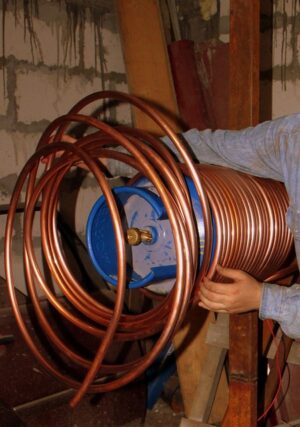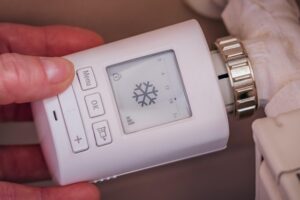Water heaters electric systems face corrosion and scale buildup issues over time. Regular cleaning, flushing, and proper water treatment prevent these problems. Stainless steel components enhance performance and longevity, preventing limescale. Proper maintenance, including vinegar cleaning, extends lifespan and ensures optimal efficiency, especially with tankless electric heaters.
In the realm of modern home appliances, stainless steel electric water heaters stand out for their durability and efficiency. This article explores how these heaters resist corrosion and scale formation, crucial factors in ensuring optimal performance and longevity. By understanding the science behind corrosion and scale buildup, we delve into the advantages of stainless steel as a material choice. Additionally, practical maintenance tips are provided to help users prevent accumulations, thereby enhancing the overall lifespan of their electric water heaters.
- Understanding Corrosion and Scale Formation in Electric Water Heaters
- Stainless Steel: A Resistant Material for Efficient Heating
- Maintenance Tips to Prevent Accumulation and Prolong Lifespan
Understanding Corrosion and Scale Formation in Electric Water Heaters

Electric water heaters are a popular choice for home water heating due to their energy efficiency and convenient features. However, like any heating system, they face specific challenges related to corrosion and scale buildup over time. Understanding these processes is essential in maintaining optimal performance and longevity of electric hot water systems.
Corrosion occurs when metallic components of the electric water heater react with water, leading to the formation of metal oxides or other compounds on the surface. This is particularly prevalent in residential electric heaters, especially in areas with hard water containing high mineral content. Scale, a solid deposit that accumulates within the tank and heating elements, also contributes to reduced efficiency and potential failure of tank water heaters and electric storage heaters. Tankless electric systems, often known as point-of-use heaters or instant electric heaters, are less prone to scale buildup but still require regular maintenance to prevent corrosion. Regular cleaning and flushing, along with proper water treatment, can significantly resist these issues, ensuring the smooth operation of electric hot water systems for years.
Stainless Steel: A Resistant Material for Efficient Heating

Stainless steel is a material renowned for its exceptional resistance to corrosion and scale formation, making it an ideal choice for water heaters, particularly electric models. When incorporated into electric water heating systems, stainless steel offers numerous advantages that enhance both performance and longevity. The metal’s natural properties create an impenetrable barrier against water chemistry changes, effectively preventing the buildup of limescale, which can significantly reduce energy efficiency in traditional tank water heaters and electric hot water systems.
Residential electric heaters equipped with stainless steel components provide efficient energy-saving solutions. Tankless electric systems, for instance, point of use heaters and instant electric heaters, benefit from this material’s ability to resist corrosion, ensuring consistent performance over time. Moreover, stainless steel electric storage heaters can maintain optimal heating capabilities, even in demanding residential applications, contributing to a comfortable home water heating experience without compromising energy conservation.
Maintenance Tips to Prevent Accumulation and Prolong Lifespan

Proper maintenance is key to keeping your stainless steel electric water heaters in top condition and extending their lifespan. Regular cleaning is essential to prevent scale buildup, which can clog the system and reduce efficiency. Start by shutting off the power supply to your heater, then use a mixture of vinegar and water to flush out any mineral deposits or scale. This natural cleaning solution is effective yet gentle on the stainless steel surface.
Additionally, ensure you inspect the heating elements for any signs of damage or corrosion. Clean the access panel and check the insulation to maintain optimal performance. Remember, regular maintenance not only protects your electric water heaters but also contributes to energy-efficient home water heating, especially with modern tankless electric systems like point of use heaters and instant electric heaters, which offer precise temperature control and reduce energy wastage.
Stainless steel electric water heaters offer an effective solution for households seeking reliable heating with minimal maintenance. By understanding corrosion and scale formation, homeowners can fully appreciate the advantages of this durable material. Regular upkeep, including flushing and cleaning, is key to preventing buildup and ensuring a prolonged lifespan. Investing in stainless steel technology promises a efficient, scalable, and long-lasting hot water supply.






